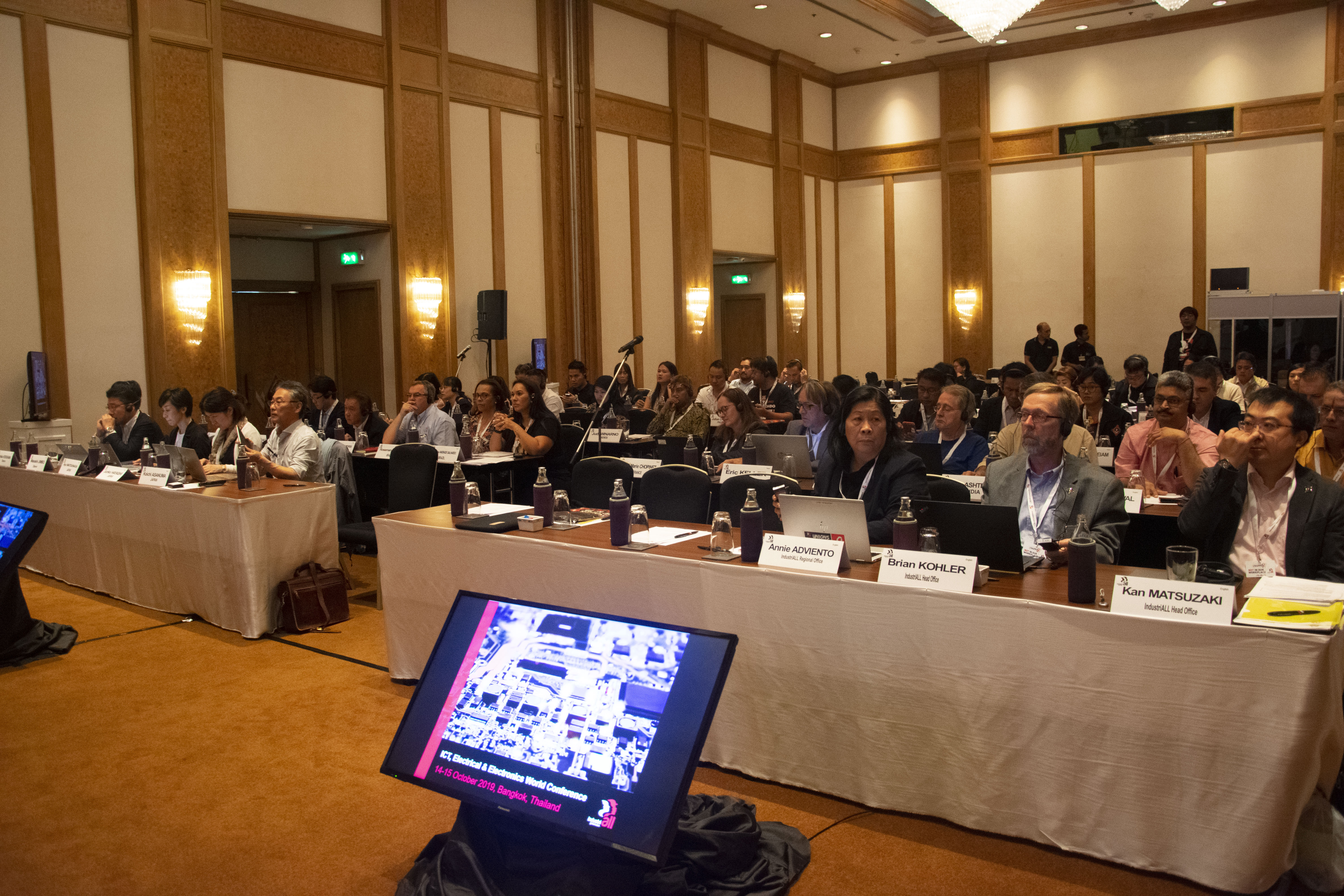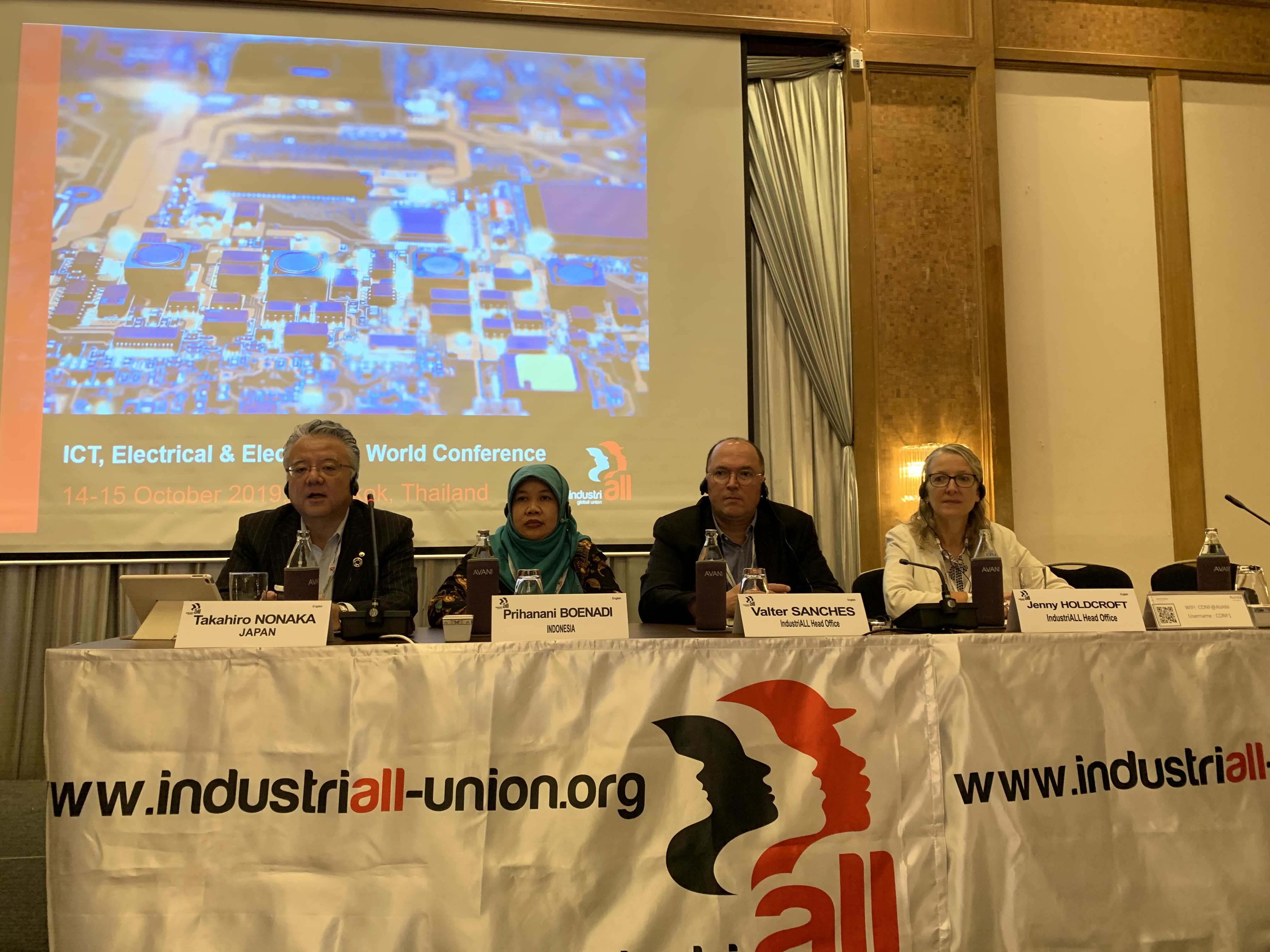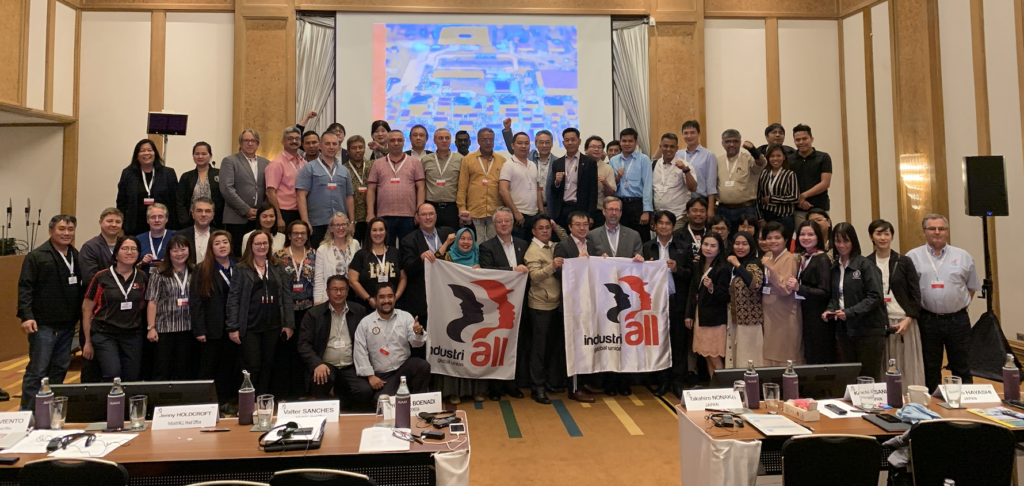16 October, 2019More than 60 representatives of trade unions from 13 countries met in Bangkok, Thailand, this week for the IndustriALL Global Union ICT, Electrical and Electronics World Conference, setting a four-year plan of action at a time of increasing global instability.
“The world is fragmented and divided. There are so many irrational things taking place and trade unions must be the first ones to point them out and correct the situation,” said IndustriALL co-chair of the section, Takahiro Nonaka, from Japanese union JEIU/JCM. “We need a human-first society and that requires sustainable policies. We must make sure there is justice and equality in the workplace.”
The conference on 14 and 15 October 2019 identified three main areas of action – a need to focus on supply chains, organize precarious workers, and explore and prepare for the future of work.

IndustriALL affiliates approved a four-year action plan.
Section co-chair, Prihanani Boenadi, from FSPMI in Indonesia, said digitalization and automation are a key threat to workers’ jobs, while exploitation of workers on precarious contracts is rampant. Industry 4.0 is expected to hit medium-skilled workers the hardest, who represent the majority of union members in the sector.
“We will stand up and demand that employers and governments pay for a Just Transition,” said IndustriALL general secretary, Valter Sanches. “The ICT sector is growing and most affected by digitalization. We must make sure that workers benefit.”
In the past five years, an IndustriALL project in Indonesia, Malaysia, Philippines, Taiwan, Thailand and Vietnam, has increased union membership by 20,000 and led to the training of more than 3,000 trade unionist activists and workers, of whom 30 per cent were women, reported Kan Matsusaki, director for ICT, Electrical and Electronics at IndustriALL.
However, the need to densify unionization and increase the number of trade union networks and global framework agreements is clear, said assistant general secretary, Jenny Holdcroft:
“We must exert more pressure on the multinationals in control of the sector. We need to expose to the public some of the poor working conditions in the supply chains of these companies.”
Exposure to hazards in the workplace is common in the sector. Of the estimated 200,000 chemicals used in the production of electronic devices and electrical appliances, only 1,000 have been tested for occupational health exposure limits.
E-waste was also highlighted as a major problem for the industry. The world produces 44.7 million tonnes of e-waste per year, a figure expected to grow to 120m tonnes by 2050. Affiliates called for more pressure on brands to take responsibility for the safe recycling of their products.
The conference expressed solidarity with the victims of deadly typhoon Hagibis, which prevented many participants from Japan from attending the meeting. The intensity and number of typhoons in the region is increasing said affiliates, who acknowledged the threat of climate change to jobs and the environment.

At the end of the conference, participants unanimously re-elected Prihanani Boenadi and Takahiro Nonaka as co-chairs of IndustriALL’s ICT, Electrical and Electronics section, and approved the action plan for the next four years.
See more photos of the meeting on flickr: https://bit.ly/2qdGGpH
